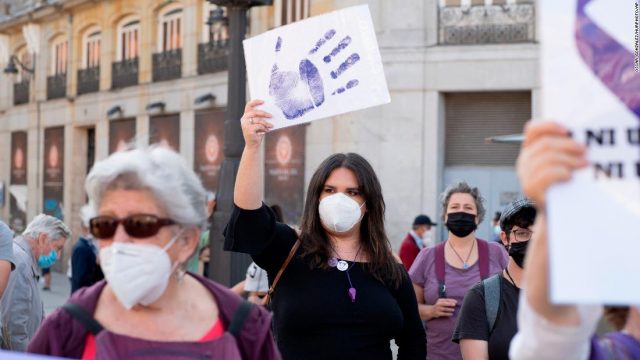It approved the bill five years after what became known as the ‘wolf pack case’, in which five men raped an 18-year-old woman at the Pamplona bullfighting festival and caused public revolt and were called upon to reform sexual violence laws.
The draft still requires parliamentary approval, which is expected before the end of the year.
Based on a “yes means yes” model that qualifies any non-consensual sex as rape, the law will bring Spain into line with 11 other European countries, including Sweden, Portugal and the United Kingdom, which use similar legal definitions.
“What the new law does is put the victim at the center of the public response,” spokeswoman Maria Jesus Montero told a news conference. “Silence or passivity does not mean consent.”
Under existing law, a perpetrator must have used physical violence or intimidation in order for an attack to be classified as rape.
Stalking and street harassment, which are considered misdemeanors under current law, become crimes, as is female genital mutilation.
Gang rape will be seen as an aggravating factor that carries a prison sentence of up to 15 years for deterring gang crimes similar to others that have shocked Spaniards.
In parallel, the measures call for the creation of a 24-hour sexual assault helpline and specialized orphanages for minors.
Spain has long sought to position itself at the forefront of sexual politics and counter the prevailing macho attitudes. It legalized gay marriage in 2007 and introduced a groundbreaking gender violence law in 2004.
Last week, the Cabinet passed a draft law that allowed anyone over 14 to legally change their gender without a medical diagnosis or hormone treatment.
Protests erupted across Spain on Monday night in response to the killing of a gay man who was killed in what appeared to be a homophobic attack in the northern city of La Coruna over the weekend.
Police in Madrid accused protesters of batons, prompting the government to launch an investigation into their behavior.
dgth




